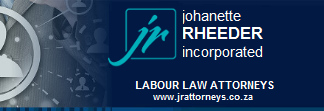Document Preview
Document Details
- Title
- Absenteeism and how to manage it
- Description
- Identifying the different types of absenteeism and how to manage it.
- Category
- Discipline
- Sub Category
- Discipline
- Document Type
- Information Sheet
- Filename
- Absentieeism, and how to manage it IS.pdf
- Publish Date
- 12/09/2014
- Price
- R115.00
- Author
- Johanette Rheeder
- Document Format
-
 PDF
PDF
2 pages in document, you are previewing the first 2 pages below:
Upcoming Events
Cross Examination Skills
Date: 05/05/2025 09:00:00
Event Type: Distance Learning
Venue: Office / Home
Managing HR Challenges
Date: 12/05/2025 09:00:00
Event Type: Distance Learning
Venue: Office / Home
Basic Labour Relations - LRA & BCEA
Date: 19/05/2025 09:00:00
Event Type: Distance Learning
Venue: Office / Home
Guide to Retrenchments
Date: 26/05/2025 09:00:00
Event Type: Distance Learning
Venue: Office / Home
See more...
2025 © LabourSmart Training (Pty) Ltd. All Rights Reserved. | Developed and Hosted by Resolve Technology Solutions (Pty) Ltd | SEO by NextG


